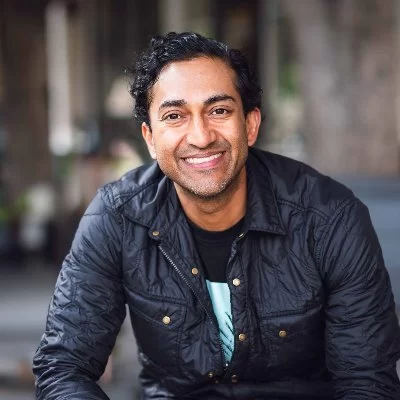- Thursday, May 08, 2025
Dr. Vinay Prasad’s FDA appointment sparks market turbulence as vaccine and gene therapy stocks tumble, with Moderna dropping 10 per cent, Pfizer 3 per cent, and smaller biotech firms like Sarepta and Taysha losing up to 20 per cent amid regulatory uncertainty.

By: Vibhuti Pathak
In a move that has already sent shockwaves through both the medical and financial worlds, Indian-American hematologist-oncologist Dr. Vinay Prasad has been appointed as the new Director of the US Food and Drug Administration’s (FDA) Center for Biologics Evaluation and Research (CBER), the division that oversees vaccines and other biologic products.
Known for his outspoken criticism of COVID-19 mandates, including vaccine booster shots and mask policies, Dr. Prasad’s appointment is stirring major debate and raising questions about the future direction of the agency’s vaccine policies.
Dr. Prasad’s selection was announced on Tuesday (6) by FDA Commissioner Dr. Marty Makary via an internal email. Commissioner Makary praised Prasad’s medical credentials, citing his “long and distinguished history in medicine” and contributions to oncology research. Prasad joins the FDA from the University of California, San Francisco (UCSF), where he served as a professor of epidemiology.
Everything Marty says is spot on in this clip. https://t.co/fJFAFiuDTT
— Vinay Prasad MD MPH (@VPrasadMDMPH) May 1, 2025
He holds a medical degree from the University of Chicago and has previously worked with both the National Cancer Institute and the National Institutes of Health.
However, the appointment is anything but conventional. During the COVID-19 pandemic, Dr. Prasad built a reputation as a vocal critic of the federal government’s public health response. He regularly challenged the effectiveness of lockdowns, mask mandates, school closures, and especially COVID-19 vaccine booster campaigns.
Through his blog and social media presence on X (formerly Twitter), he questioned the scientific basis of several policies enacted under the Trump and Biden administrations, often finding support from like-minded skeptics and the current FDA Commissioner Makary himself.
Dr. Prasad’s criticism also extended to the very office he now leads. He was especially critical of his predecessor Dr. Peter Marks, the longtime head of CBER who played a crucial role in leading Operation Warp Speed — the federal initiative to fast-track the development and distribution of COVID-19 vaccines.
Dr. Marks resigned earlier this year, publicly slamming the Department of Health and Human Services (HHS) and Secretary Robert F. Kennedy Jr., citing pressure to conform to political agendas rather than promote scientific transparency.
“It has become clear that truth and transparency are not desired by the Secretary, but rather he wishes subservient confirmation of his misinformation and lies,” CNN quoted Marks as saying in a scathing statement.
The market responded swiftly to Prasad’s controversial appointment. Shares of major vaccine makers took a significant hit. Moderna’s stock (NASDAQ: MRNA) dropped by approximately 10 per cent, while Pfizer shares fell by 3 per cent, according to Reuters. Smaller biotech companies focused on gene therapies, such as Sarepta Therapeutics and Taysha Gene Therapies, experienced even greater losses, with their stock prices plunging around 20 per cent.
Industry analysts attribute the market reaction to fears that Prasad’s leadership may signal a tougher regulatory stance on vaccine approvals and new biologics.
His appointment coincided with the FDA’s announcement of more stringent requirements for future vaccine approvals, including mandatory placebo-controlled studies, which are expected to slow down the development timeline and increase research costs for pharmaceutical companies.
Prasad’s leadership marks a stark departure from the FDA’s pandemic-era policies, and stakeholders are watching closely to see how he steers the agency’s vaccine strategy in the years to come.
Supporters of his appointment argue that he brings much-needed skepticism and scientific rigor to a division criticized for its pandemic-era urgency, while critics worry that his views may undermine public trust in essential vaccine programs.
As the FDA enters a new chapter under Prasad’s leadership, one thing is clear — change is already underway, and the implications could be far-reaching for both public health policy and the global pharmaceutical industry.